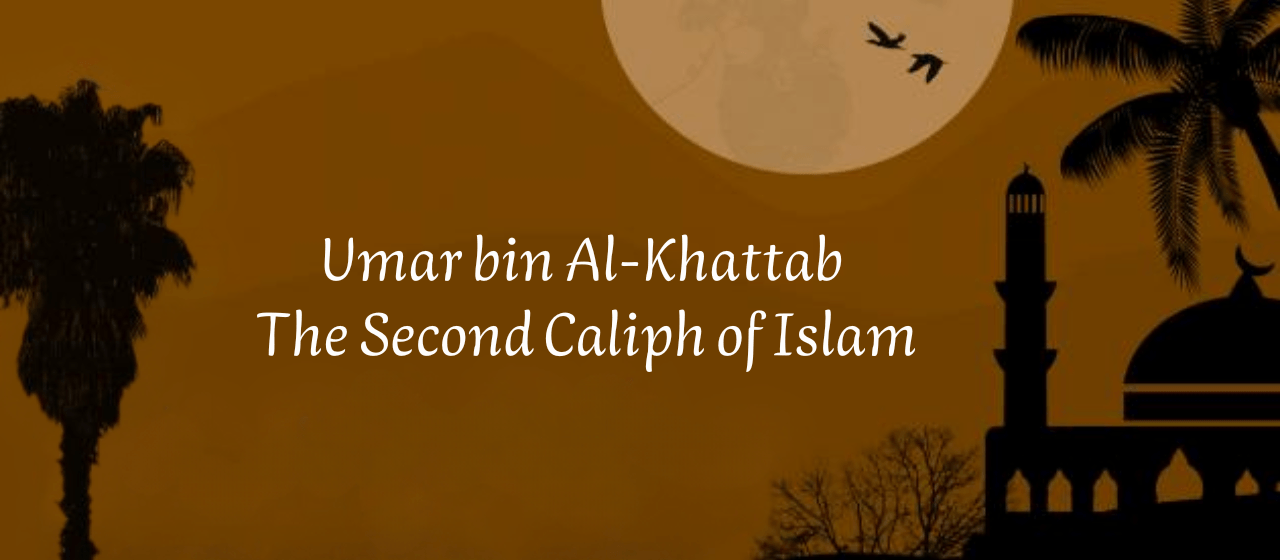After immigrating to Madina, the companion Umar Ibn Al-Khattab continued his support and struggle for the sake of Islam. He was present by side of the prophet Muhammed (ﷺ) through all the stages of building the new Islamic state. He never fell behind on of the battles that the prophet Muhammed (ﷺ) fought. Sayyiduna Umar was attributed with strength, mighty, and seriousness. He never accepted defeat, even if it was so close. In the battle of Uhud, the second largest battle, Abu Sufyan stood at the end of the battle, Abu Sufyan asked thrice, “Is Muhammad present amongst these people?” The Prophet (ﷺ) ordered his companions not to answer him. Then he asked thrice, “Is the son of Abu Quhafa present amongst these people?” He asked again thrice, “Is the son of Al-Khattab present amongst these people?” He then returned to his companions and said, “As for these (men), they have been killed.” `Umar could not control himself and said (to Abu Sufyan), “You told a lie, by Allah! O enemy of Allah! All those you have mentioned are alive, and the thing which will make you unhappy is still there.” Abu Sufyan said, “Our victory today is a counterbalance to yours in the battle of Badr, and in war (the victory) is always undecided and is shared in turns by the belligerents, and you will find some of your (killed) men mutilated, but I did not urge my men to do so, yet I do not feel sorry for their deed” After that he started reciting cheerfully, “O Hubal, be high! (1) On that the Prophet (ﷺ) said (to his companions), “Why don’t you answer him back?” They said, “O Allah’s Messenger (ﷺ) What shall we say?” He said, “Say, Allah is Higher and more Sublime.” (Then) Abu Sufyan said, “We have the (idol) Al `Uzza, and you have no `Uzza.” The Prophet said (to his companions), “Why don’t you answer him back?” They asked, “O Allah’s Messenger (ﷺ)! What shall we say?” He said, “Say Allah is our Helper and you have no helper.”
The companion Umar Ibn Al-Kattab was the closest friend to the prophet Muhammed (ﷺ) after Sayyiduna Abu Bakr. Abu Sa’id Al-Khudari (may Allah be pleased with him) narrates that the Messenger of Allah (ﷺ) said, “Whoever hates Umar hates me. Whoever loves Umar loves me. Allah boasts about the people at the evening of Arafat generally and boasts of Umar specifically. Allah did not send a prophet except that his nation had a speaker and if there was one of my nation it would be Umar.” They asked, “O Messenger of Allah how does he speak?” He said, “Angels speak upon his tongue.” He was a person who Satan has not meet since he became Muslim except murmur in his face. The revelation of Quran came agreeing to the opinion of the companion Umar, narrated Anas: that Umar (R.A.) said, “I had the same idea as Allah in three things: I said, ‘O Allah’s Messenger (ﷺ), I wish that you take the station (Maqam) of Ibrahim as a place of prayer.’ So Allah revealed: “And take you (people) the Maqam (place) of Ibrahim [or the stone on which Ibrahim stood while he was building the Kaaba] as a place of prayer.”
When Abu Bakr’s (R.A.) sickness grew intense, he appointed Umar to lead the prayers during the period of his illness . His illness prolonged, and when his condition worsened, he felt that his end was near. People gathered around him, and told him he needs to choose a ruler and they would accept whoever he chooses. Abu Bakr sent for Umar, and informed him that he had appointed him as his successor. Umar said: “But I have no desire for the state.” Thereupon, Abu Bakr said: “But the Ummah needs you. I have prayed to Allah to direct me rightly in the choice of my successor, and my choice is fundamental for the unity and strength of the Muslims.” Umar acquiesced, and Abu Bakr dictated the testament to Othman appointing Umar as the Caliph in succession to Abu Bakr.
His Reign as Caliph
Syyiduna Umar Ibn Al-Kattab made great achievements to the state of Islam and left a magnificent effects to Ummah, his reign was distinguished by the great and extended conquests, such as the conquest of Damascus, Jordan, Bayt Al-Maqdis (Holy Temple), Egypt, and other states were also conquered while spreading Islam all over. He was the first to be called the Emir (prince) of the believers. Also, his era was marked with a great civilizational and administrative achievements.
1- He was the first to decree the Hijri calendar (Hijri Year i-e according to the date of Prophet Mohammad’s (S.A.W.) migration to Medinah).
2- Taraweeh prayer was establisehed in Ramadan for the first time in his era, and people were assembled to do Taraweeh prayer in congregation.
3- He was the first one to set specific positions in the administrative system of the Islamic state, such as Chief Secretary (Khatib), Military Secretary (Khatib ud Diwan), Revenue Collector (Sahib ul Kharaj), Police Chief (Sahib ul Ahdath), Treasury Officer (Sahib Bait-ul-Maal) and many other official posts.
4- He established a specific place to save flour, barely, and Muslim’s food.
5- He was the first one to start the compulsory military service for youth and capable men.
Eventually, the virtues of the prince of believers, Umar Ibn Al-Khattab are numberless, perhaps the words of the prophet Muhammed can express his statues among believers, Abu Dhar (may Allah be pleased with him) narrates that the Messenger of Allah (may Allah bestow peace and blessings upon him) saw Umar and said, “You shall not be afflicted with tribulation aslong as he is amongst you.” May Allah bless the companinion Umar Ibn Al-khattab


